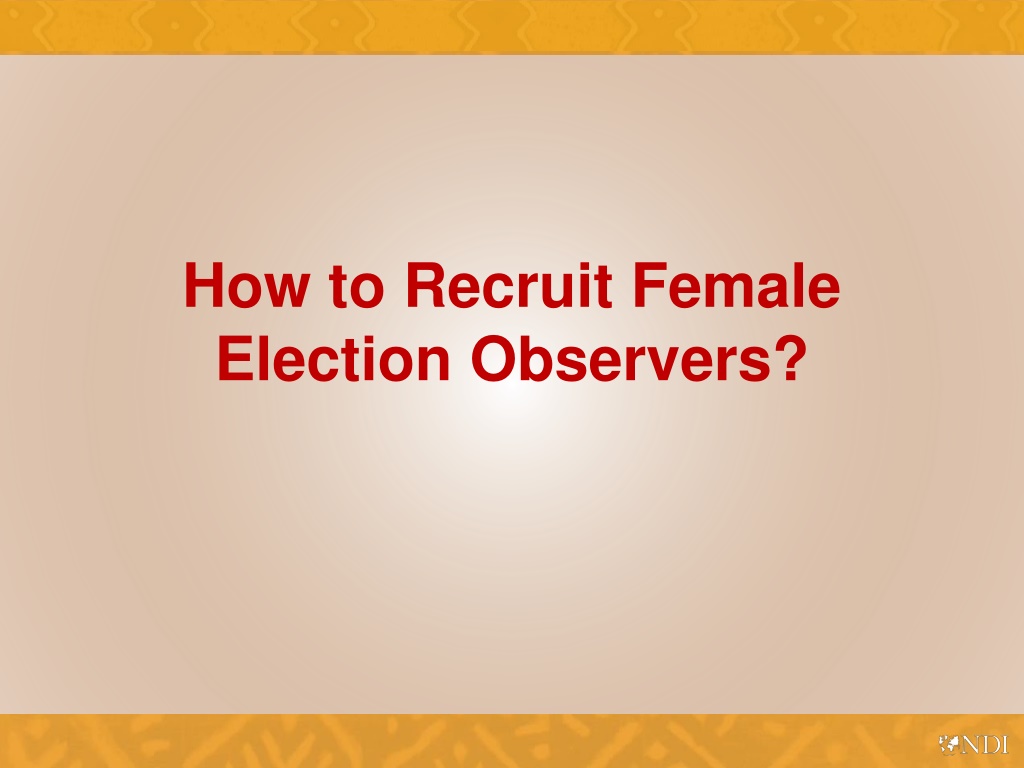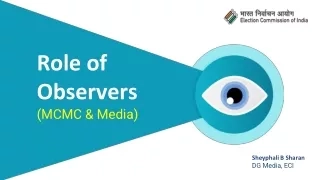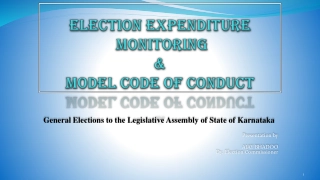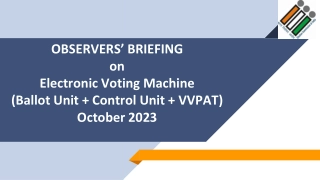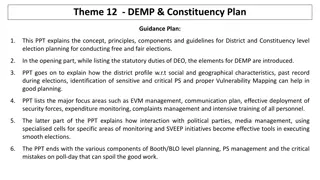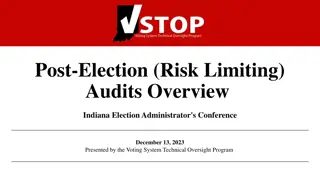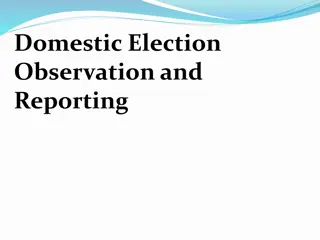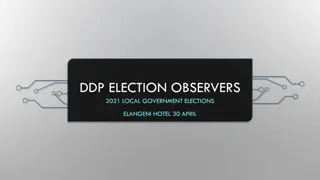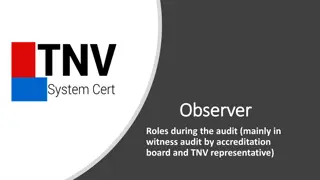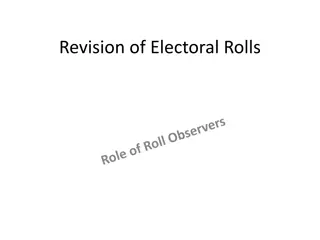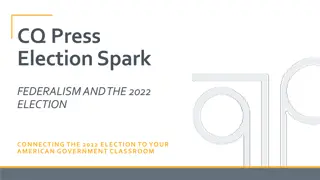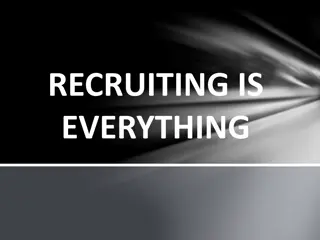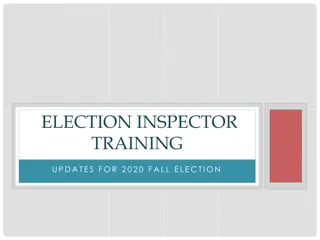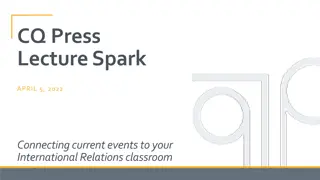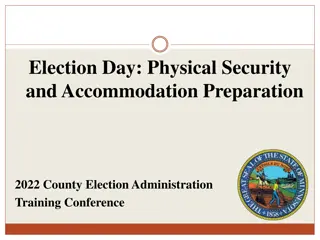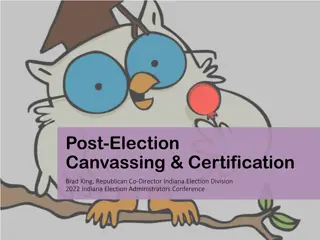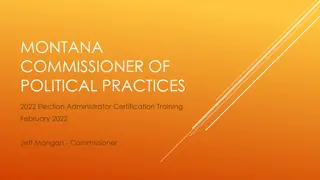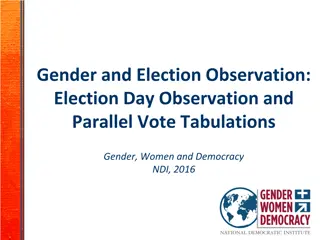Strategies for Recruiting Female Election Observers
Inclusivity is crucial in election observation initiatives to ensure representation of all citizens, including marginalized populations like women. Overcoming barriers to female participation requires proactive recruitment, understanding community-specific challenges, and engaging with various groups. Identifying capable women from diverse backgrounds such as midwives, students, and small business owners can help address these barriers effectively.
Uploaded on Sep 18, 2024 | 0 Views
Download Presentation

Please find below an Image/Link to download the presentation.
The content on the website is provided AS IS for your information and personal use only. It may not be sold, licensed, or shared on other websites without obtaining consent from the author.If you encounter any issues during the download, it is possible that the publisher has removed the file from their server.
You are allowed to download the files provided on this website for personal or commercial use, subject to the condition that they are used lawfully. All files are the property of their respective owners.
The content on the website is provided AS IS for your information and personal use only. It may not be sold, licensed, or shared on other websites without obtaining consent from the author.
E N D
Presentation Transcript
How to Recruit Female Election Observers?
Inclusivity It is important for any election observation initiative to be inclusive Since the initiative speaks for all citizens, its own composition should reflect the composition of all the people of a given country male and female
Inclusivity In general, marginalized populations, and in particular women, face greater electoral discrimination than other members of the population. Connecting with communities can facilitate better information gathering for observation groups.
Barriers to Participation It is important to remember that women face different obstacles than those faced by men in electoral participation, including participation as an observer. Community members know better than anyone else the nature and extent of the barriers that exist observation recruiters should be encouraged to think about these barriers and take them into account
Proactive Recruitment Recruiting women, then, requires proactivity and dynamism We must engage in active research to find capable women who meet the recruitment criteria. This requires us to think about the barriers and strategies to overcome them.
Barriers Barriers are context-specific and can vary depending on where one is observing, even within one country. For example, the barriers in the capital may not be similar to the barriers found in the north of the country, which subsequently may differ from those that are found in the west. It s important that observation recruiters learn from the communities chosen for observation to better understand the specific barriers.
Possible Barriers Lack of time Lack of knowledge Lack of interest a priori Not very connected with civil society Fears vis- -vis the security situation Misunderstandings of the role of an observer
How to Address Barriers? Identify community members who could serve as observers Midwives Students Women who work in small businesses
How to Address Barriers? We must change the mentality of recruitment If women in the interior are not very plugged in to civil society, and if recruiters only call people from civil society for recommendations, we will never have many women observers Recruitment, then, requires real work!
How to Address Barriers? Sensitization Recruiters must explain the role of an observer, and the requirements and expectations of participating Talk with family members or community leaders who could prevent women from participating Give assurances about the safety and neutrality of the project Make an effort to generate interest in the project
